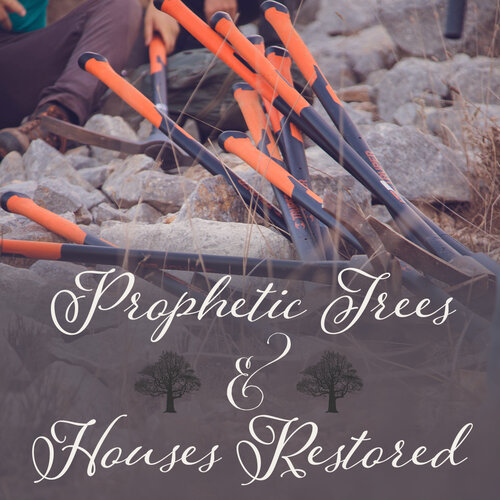Israel’s seven-month building freeze broken while thousands of trees are about to be planted in the heartland
Are you ready for good news? This week has seen a number of positive events taking place in Israel, especially the biblical heartland.
In an unexpected move, Israel approved nearly 5,000 new homes to be built in Judea and Samaria. Last week, 2,688 homes were approved for construction and 2,260 were approved to begin the planning stage, with the next step being construction. Har Bracha (the Mt. of Blessing) was approved to build 286 new units, which will increase the size of the settlement by 50%! This is huge for residents of Israel’s heartland, as many feared that the recent signing of the Abraham Accords would result in a long-term building freeze being imposed on the settlements.
Pnei Kedem, a 20 year-old settlement in the Gush Etzion area of Judea, also received official recognition in the Israel land records last week. This is especially significant for HaYovel as we had the privilege to harvest olives for a local farmer in Pnei Kedem this week.
Peace Now, an NGO who call themselves the “settlement watchdog,” but who are really just a left-wing organization who have proved themselves to be against Jewish life in Judea and Samaria, said that this year is a record-breaking year for the number of new homes that have been approved in the “West Bank.” So far,12,159 homes have been approved, and that is including the seven-month de facto freeze (the planning committee did not meet between February and October)! It’s even possible that there will be more homes approved before the end of the year.
What Peace Now considers disastrous is actually a fulfillment of biblical prophecy:
“They shall build houses and inhabit them; they shall plant vineyards and eat their fruit.” (Isaiah 65:21)
Speaking of Bible prophecy, here at HaYovel we are embarking on another exciting agricultural project. You’ve heard us talk about planting trees before. This week, we started breaking the ground at our forestry site in preparation for the first planting. That’s right. As soon as we experience one or two rains, we will be putting 3,000 trees in the ground. The rain is needed to prepare the soil before we plant the first saplings.
Our staff and volunteers have blisters and calluses on their hands from removing briars, digging holes, and moving rocks while preparing the ground for these prophetic trees. Not only will this forest add beauty to the land of Israel, but it will also help to restore Israel’s soil. Estimations say that 14 feet or more of Israel’s topsoil has been lost over the past 2,000 years. Planting trees will help to restore soil and water and drive away the thorn bushes which cover the land (called the widow’s garments), allowing Israel’s former glory to be restored.
HaYovel’s tree project is unique as we are seeking to plant indigenous trees, something that has hardly been done, especially on a large scale. We will be planting several types of oak trees, ficus, almond, pomegranate, and many more!
While there have been trees planted all over Israel over the last 100 years, hardly any have been planted inside Judea and Samaria.
“It will be made a wasteland, parched and desolate before me; the whole land will be laid waste because there is no one who cares.” (Jer. 12:11)
Planting trees is a generational vision. Our goal is not just to plant trees but to cover Israel’s mountains with blossoming branches and fruit.
“But you, O mountains of Israel, you shall shoot forth your branches and yield your fruit to My people Israel, for they are about to come.” (Ezekiel 36:8)
This article is not meant to be an advertisement. However, if you would like to plant a tree in the land of Israel, you can go to www.GreeningIsrael.com.
Amidst uncertainty in the world, critical elections in the US, and a nasty virus that continues to circle the globe, God is restoring the land and people of Israel. It is our job to align ourselves with His prophetic plans.

